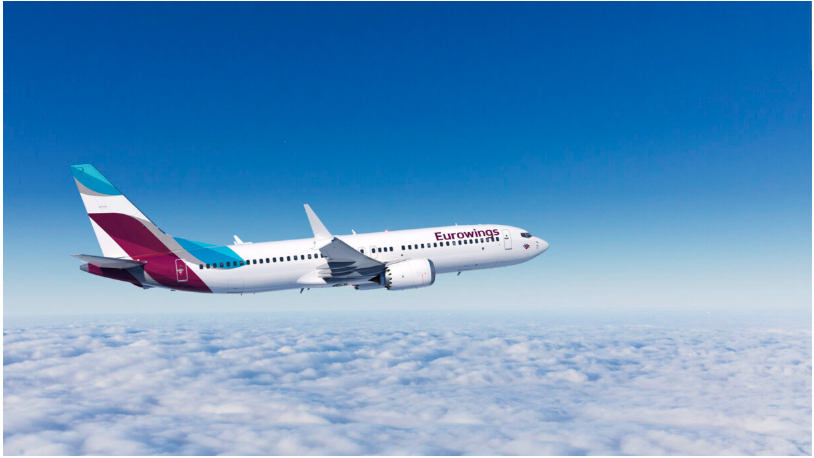 The Lufthansa Group has announced a significant development in its fleet expansion strategy, confirming the allocation of 40 Boeing 737 MAX 8 aircraft to its subsidiary, Eurowings. This move reflects Lufthansa’s commitment to modernizing its fleet, improving fuel efficiency, and enhancing its service offerings to meet the demands of the evolving aviation market.
The Lufthansa Group has announced a significant development in its fleet expansion strategy, confirming the allocation of 40 Boeing 737 MAX 8 aircraft to its subsidiary, Eurowings. This move reflects Lufthansa’s commitment to modernizing its fleet, improving fuel efficiency, and enhancing its service offerings to meet the demands of the evolving aviation market.
The introduction of the Boeing 737 MAX 8 aligns with Lufthansa Group’s overarching goal of reducing carbon emissions across its operations. The MAX 8 is renowned for its fuel-efficient design, offering a 20% improvement in fuel consumption compared to previous-generation aircraft. This upgrade is expected to significantly lower the carbon footprint of Eurowings, which primarily operates within the European market.
Eurowings CEO, Jens Bischof, expressed enthusiasm about the addition, stating, The Boeing 737 MAX 8 is a game-changer for our fleet. It not only supports our environmental goals but also enables us to offer a better experience for our passengers through enhanced technology and comfort.
The European aviation sector is fiercely competitive, with budget carriers dominating the market. By incorporating the 737 MAX 8, Eurowings aims to strengthen its position against rivals like Ryanair, easyJet, and Wizz Air. The aircraft’s extended range capabilities also provide an opportunity for Eurowings to expand its network, including adding new routes to popular vacation and business destinations.
The MAX 8’s design includes quieter engines and advanced aerodynamics, ensuring a more pleasant experience for passengers and communities near airports. These enhancements align with the increasing demand for quieter and more sustainable aviation solutions in Europe.
According to Lufthansa Group, the deliveries of the 40 Boeing 737 MAX 8 aircraft will commence in 2025 and continue through 2027. The aircraft will replace older models in Eurowings’ fleet, including aging Airbus A320s and A319s. This transition is part of the group’s broader initiative to standardize its fleet, thereby reducing maintenance costs and improving operational efficiency. The announcement follows a previously established agreement between Lufthansa and Boeing, emphasizing the long-term partnership between the two aviation giants.
The investment in modern aircraft reflects Lufthansa Group’s optimism about the recovery of the aviation industry post-pandemic. With increasing passenger demand and an improving economic climate in Europe, the group aims to capitalize on the growing market opportunities. Industry analysts view this move as a strategic investment that not only enhances Eurowings’ operational efficiency but also positions it to capture a larger share of the budget travel market in Europe.
The allocation of 40 Boeing 737 MAX 8 aircraft to Eurowings signifies a pivotal moment for the Lufthansa Group’s fleet strategy. As the aviation industry faces mounting pressure to prioritize sustainability and cost-efficiency, the introduction of the MAX 8 highlights Lufthansa’s proactive approach to meeting these challenges. For Eurowings, this development marks a new chapter of growth, innovation, and environmental responsibility, paving the way for a more competitive and sustainable future in European aviation.

